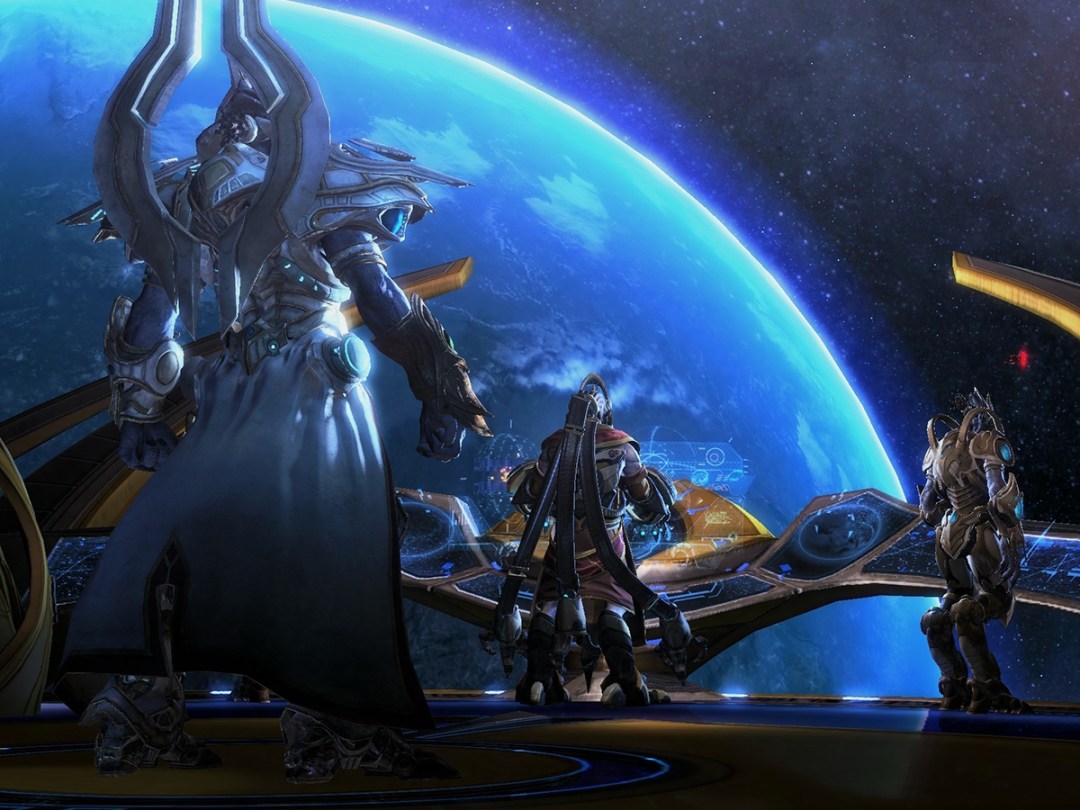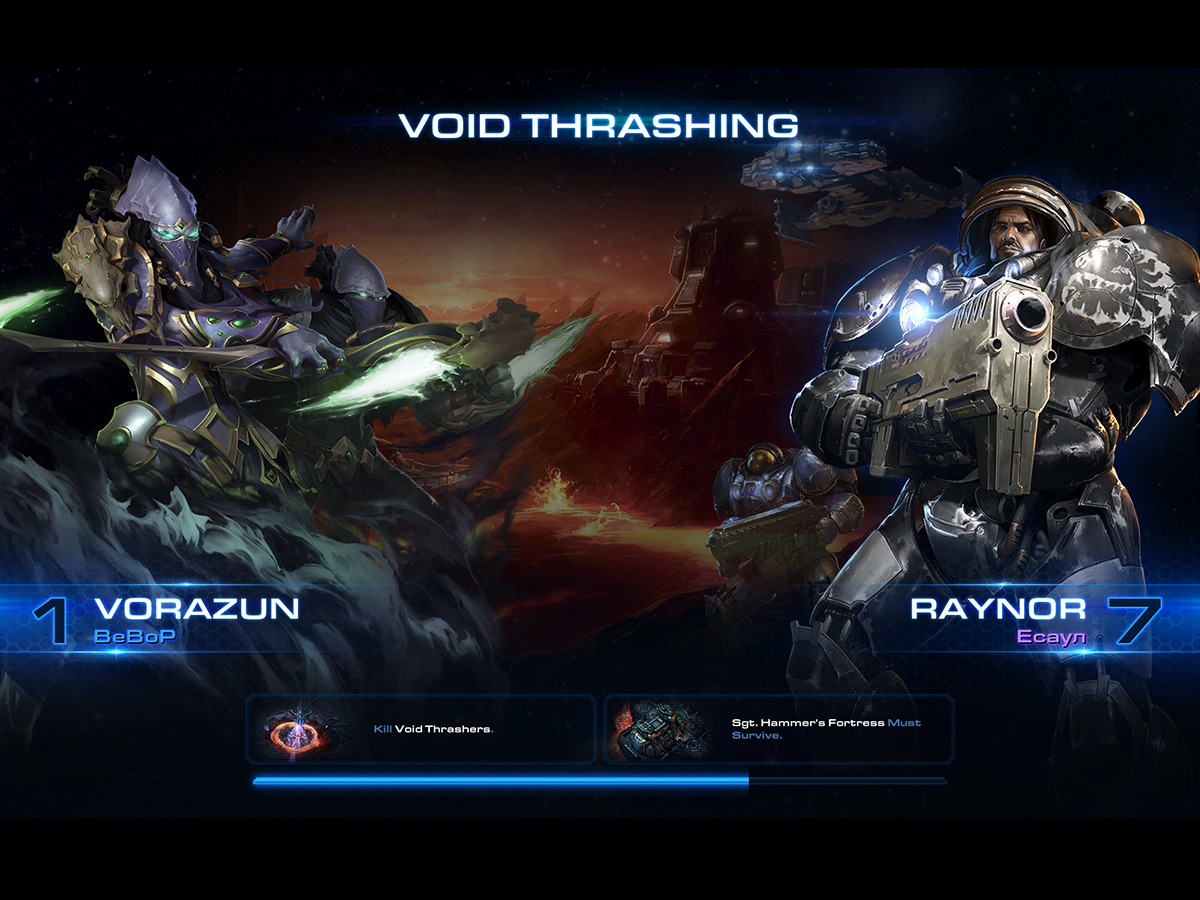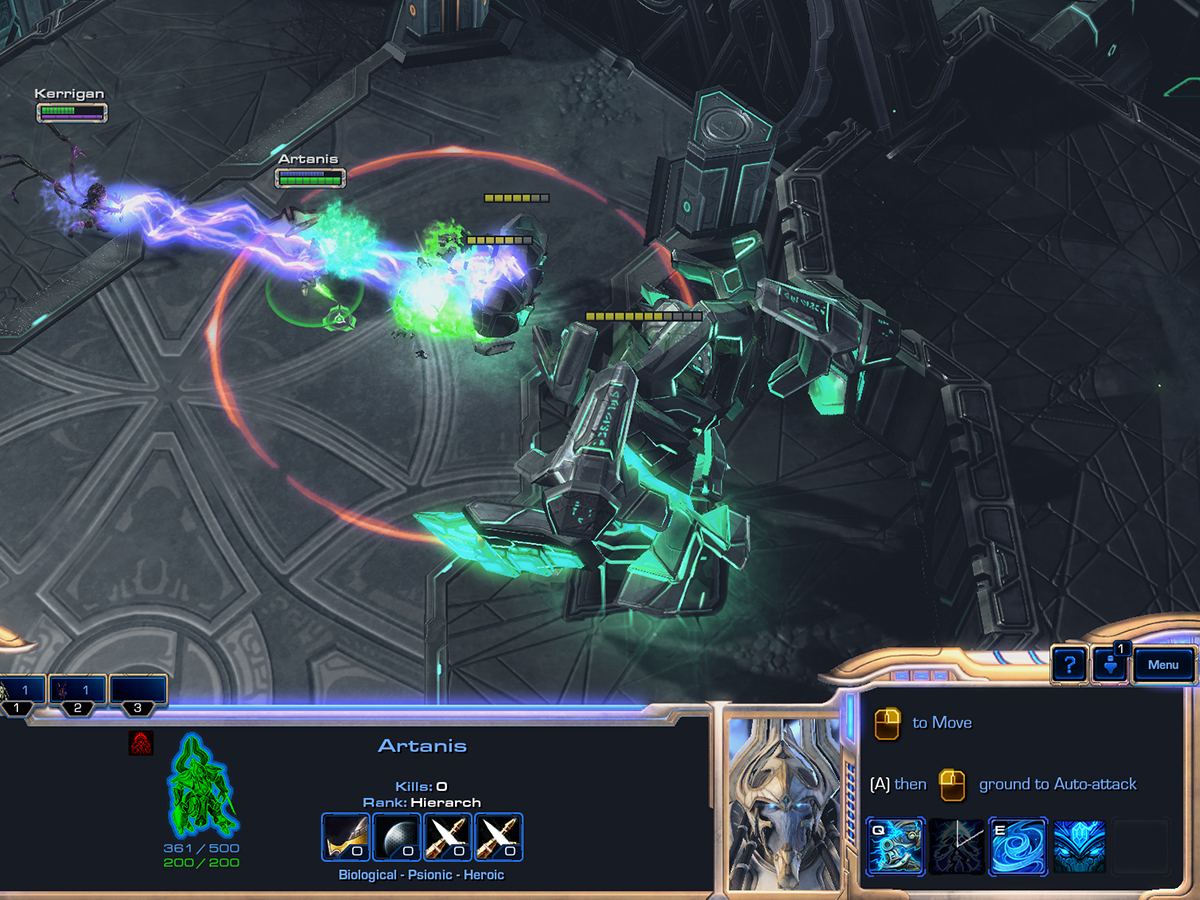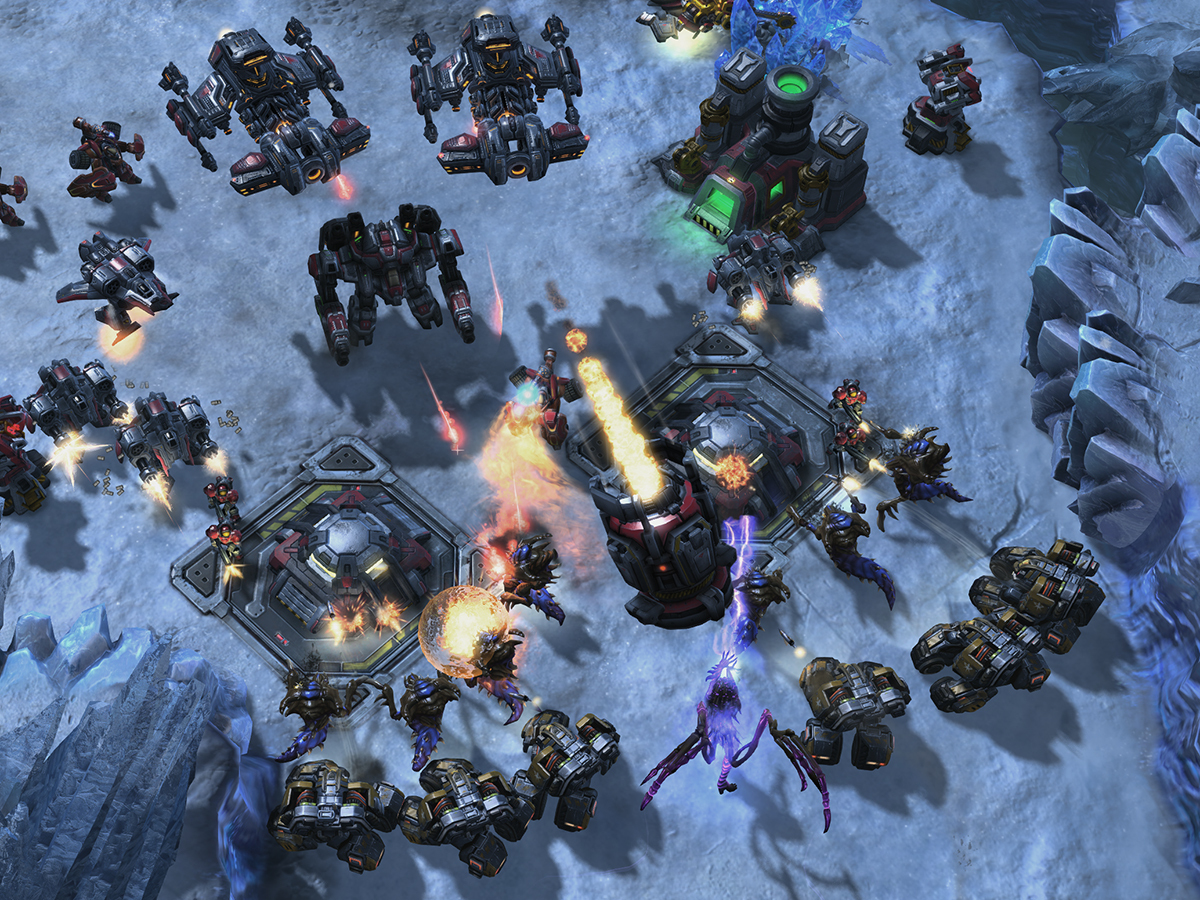StarCraft II: Legacy of the Void review
The trilogy concludes. Has this star’s light finally faded?

A couple of years ago I swore off StarCraft II’s competitive multiplayer, convinced that I would never return.
Why the vow of abstinence? StarCraft II’s online experience is brutal. No other real-time strategy game is so utterly unforgiving. Omni-awareness of potential threats must combine with multitasking flair if you’re to succeed. Unless you’re a New Age Napoleon, it can all too easily feel like punishment instead of pleasure.
It appears I’m not alone. The past couple of years has seen StarCraft II lose out to games that demand a less fanatical dedication to practice and study. Its popularity on the eSports scene has been utterly dwarfed by the likes of League of Legends.
Legacy of the Void, the Protoss-focused finale in the series, is Blizzard’s last chance to keep its monolithic creation relevant. Can StarCraft II recapture that all important sense of fun?
n00bs welcome?
StarCraft is often considered top of the RTS pile, but is also undeniably old-school in its approach to strategy. Resource harvesting and unit creation are non-negotiable and though lots of fiddly functions past have now been automated, the basic blocks of ‘gather resources’, ‘build an army’ and then ‘fight with said army’ are still enshrined.
For less hardcore players it’s a lot to manage at once and Legacy of the Void’s campaign goes a long way to making things easier on them.
Resource management, for instance, is kept to a minimum. Players are never asked to build more than two extra expansions outside their initial base and this means you get to focus on slicing and dicing Zerg rather than harvesting crystals.
Many of the units in StarCraft II have special abilities, a great number of which have now be set to ‘auto cast’ when they’re available. This is really handy when you’re controlling a mixed force with too many spells to controlled with manual efficiency.
Even better, the Protoss mothership, The Spear of Adun, can cast an array of devastating abilities on the battlefield that don’t require units at all. Giant lasers career down from the sky and players can even freeze opposing forces in place. Responding to enemy threats without splitting up your own army has never been easier.
These little tweaks all come together to make a campaign experience that’s softer than its predecessors, but still a fair challenge if you set the difficulty slider up a notch. I’ve been playing StarCraft since 1999 and still had to repeat missions several times when playing hard.
Which race is for you?
Terran – Somewhere between the Wild West and Battlestar Galactica lie the Terrans of the Koprulu sector. Beyond the cigars and southern drawl, these space soldiers are also tenacious and adaptable. This means the Terran are the easiest race to pick up, but still extremely difficult to master.
The backbone of most terran armies is the trusty marine, which is the only of the three most basic StarCraft units to possess a ranged attack for attacking from a distance.
Zerg – ‘We are the swarm’ – four words that perfectly illustrate gaming’s favourite hive-mind. The Zerg consume worlds by descending in vast numbers that overwhelm, leaving nothing in their wake. If you’re not good at spinning plates, they probably aren’t for you.
Any successful Zerg player must build more bases than their Terran or Protoss opponents and manage abilities that allow them to keep unit production high and dominate the map.
Protoss – This dignified warrior race has access to the most hardcore toys in the StarCraft arsenal on account of their technological superiority. Thanks to this their structures and units can also be ‘warped in’ on the battlefield which is good for keeping the enemy guessing.
The key word here is quality rather than quantity. Protoss units are expensive, but go a long, long way.
When two become one

The two new game multiplayer game modes on offer are also aimed at making StarCraft II less intimidating for fresh and seasoned players. Archon Mode allows two players to control a single army, essentially doubling their working capacity. I’ve been waiting for this feature to land since Wings of Liberty in 2010, as I’ve always felt less terrified when alongside a friend and made far better tactical decisions.
When controlling the same forces it’s possible to have one player focus on base-building and troop creation whilst the other deals with offence. Or, if you’re feeling super aggressive, both players can micromanage the troops to maximum effect.
If StarCraft II is to stay relevant in the coming years, this is the direction it needs to focus its attention. Communal play is always more fun than facing an opponent on your own and it makes the whole experience a lot, lot less stressful.
The brand-new co-op missions try a similar trick but with less success. Pairs of players tackle AI opponents in tailored challenges. Unfortunately this lacks the depth of facing off against human opponents. An entertaining sideshow, but one which you’ll tire of quickly.
Indie horror at its finest › SOMA review
War never changes, but the weapons do

During the release of every StarCraft game, it’s the possibility of fresh units that gets most players giddy with excitement.
With only six new toys on offer in Legacy of the Void multiplayer, some may feel shortchanged, but it’s worth remembering that StarCraft is all about balance. Each fresh unit added disturbs StarCraft II’s online meta-game, upsetting the delicate equilibrium between three distinct factions.
As a result, a bunch of units, such as the Terran Herc, were added and then scrapped as part of Blizzard’s design process. The units that have made it through have had to fit into the game’s ecosystem.
My clear favourite is called the disruptor, a giant spinning orb which can send a deadly blast of energy into groups of enemies. It’s a great answer to a common strategy of Terran and Zerg players, which is to amass an army of low-cost, biological units.
There’s also the return of an old favourite, the Zerg lurker, which sits beneath ground, thrusting up deadly spikes in a straight line. How the addition of the new units will affect the overall meta-game of StarCraft II remains to be seen, and probably won’t be fully understood until players have thrashed it out for a while.
StarCraft II: Legacy of the Void Verdict

What a last hurrah this is. The campaign contains the same cleverly conceived scenarios we’ve come to expect from Blizzard over the years. One mission is wonderfully realised game of tug of war, another sees your units involved in a race against an orbital laser to reach the objective.
Sure, it suffers the same problems of the previous two installments – hokey writing, the emotional depth of a saucer of milk, and an ever-predictable story about an ancient progenitor race – but I still found myself not wanting to bid farewell to a universe that is lovingly realised to the last.
The single-player experience is over and now the question remains whether StarCraft II’s multiplayer changes can do enough to hook in the MOBA legions and re-conscript players that now seek their pleasures elsewhere. Archon Mode and co-op missions notwithstanding, the fact is that StarCraft II’s multiplayer will always be a cruel world, but if you can stand the pressure, then you’re in for a treat.
Gaming greats › The top 10 games in the world right now
Stuff Says…
A fabulous finale, but newcomers should still beware
Good Stuff
Some fun new additions for newbies
Better than ever for playing with friends
A sharp, if sometimes repetitive, campaign
Bad Stuff
A mediocre ending to a mediocre story
Online multiplayer still inaccessible to mere mortals



